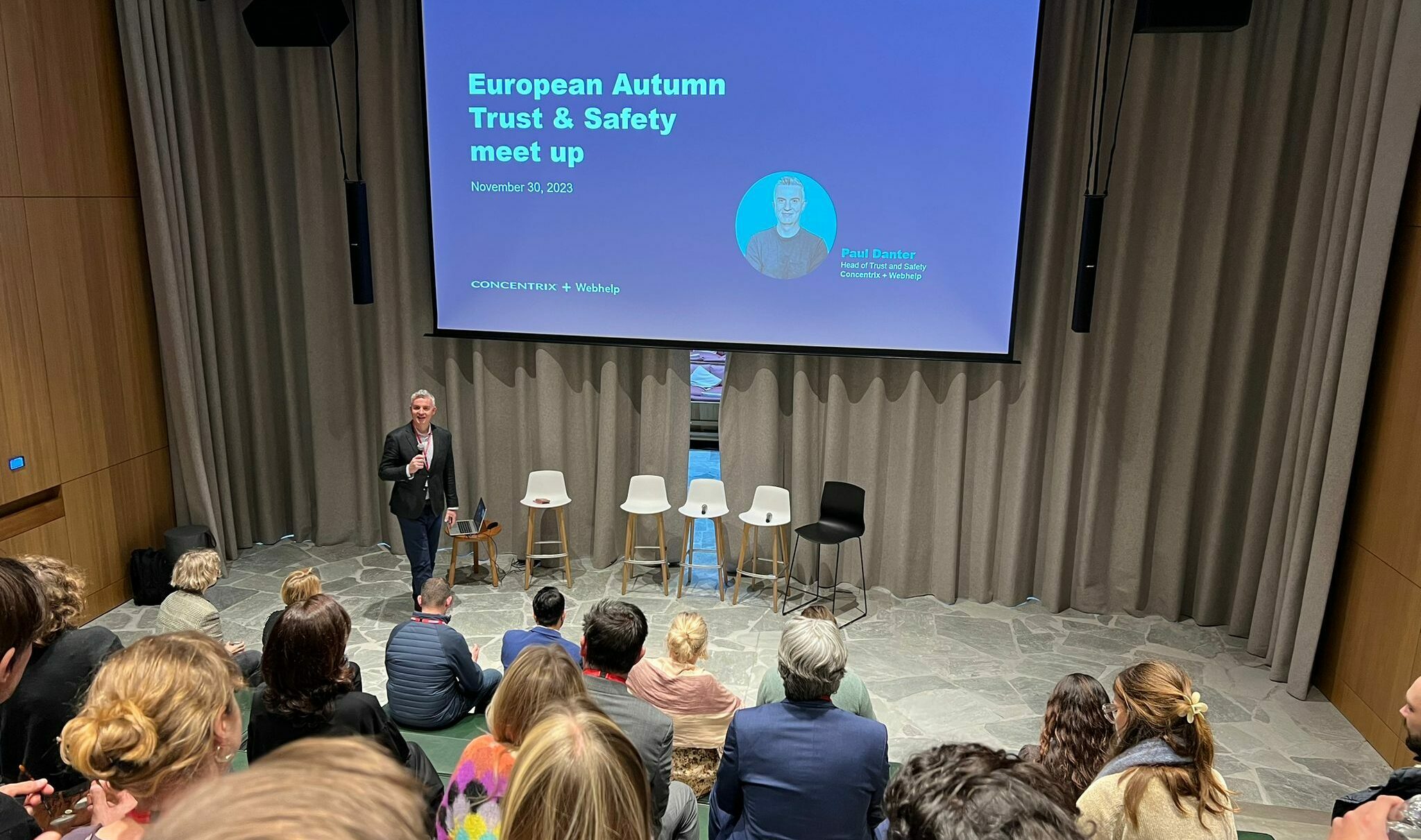Author: David Turner, CEO, Webhelp
As new technology drives a sea change across the customer experience sector, it is important to evaluate how the public honestly values personal interaction as a service need. Webhelp conducted research with the polling experts YouGov asking 2,000 British adults for their thoughts on Artificial Intelligence (AI) and how it might change the way that brands offer customer service. Webhelp UK’s CEO, David Turner, looks at the importance of the human touch.
Rules in CX are being rewritten. It’s getting harder to predict the future but we can still try. Join the debate with Webhelp!
With talk of AI and automation in the news on a daily basis, it’s too easy to get caught up in the hype. Businesses must understand both the emerging technology and the need to have people with the right skills. Unsurprisingly, every year the evolution of these technologies – and the debate around them – increases. But what will this mean for employees at the heart of customer experience?
Predictive text, driverless vehicles, sat nav, chatbots, interactive voice response, smart speakers, digital assistance, ‘drones’… these examples alone are enough to make us think that people now prefer to interact with machines rather than each other!
But assumptions like this can be dangerous for business, so we asked a few people – well actually a couple of thousand! That’s how many UK consumers responded to a recent Webhelp-commissioned YouGov survey with their thoughts on the ‘rise of the robots’ and the future of customer service.
The results proved surprising. In reality, consumer acceptance of Artificial Intelligence (AI) is limited and progressing slowly and there are substantial risks in choosing an overly aggressive approach to automated customer experience.
However, as exposure to AI and automation increases receptivity will grow – but this research confirms the importance of establishing the most productive blend of technology and human talent now. At Webhelp we are constantly improving our services to make sure we strike the perfect balance of the most advanced technology available and highly skilled people – never losing sight of the importance of the human touch.
So much of the industry discussion on AI is technical or academic, however our report concentrates on what people really think. We asked normal consumers not industry specialists, people who don’t spend each day thinking about customer experience or AI strategy.
And the findings were very clear – a large majority of UK consumers prefer dealing with humans over automated services. This was consistent across all aspects of customer service, from querying a bill (85%) and changing account details (62%) to making a complaint (84%), buying a product or service for the first time (77%), chasing an order (73%) or dealing with a fault (78%). The preference for person to person communication was overwhelming.
From the research findings, it seems that most people don’t appreciate automation in their interactions with brands. With 44% saying that they do not think AI will impact them positively in any way and 52% concluding that it would make dealing with brands more impersonal.
Take a look at this recent blog by my colleague Dave Pattman, Innovation Director at Webhelp, for a deeper dive into the research results.
To succeed, brands have to address the significant degree to which people favour human interaction over AI service tools and the negative perceptions of AI’s potential future impact. Providing bespoke channels and advisor access at key points are ways to tackle this in the short term.
The final element in creating success is by studying design technology and, in particular, the interaction between humans (the users) and computers (or mobile technology) in user experience design.
Helen Murray, Chief Customer Solutions Officer at Webhelp UK, recently blogged on the challenges of designing CX solutions with AI, sharing and suggested five key issues that executives need to consider to create a seamless and efficient service.
AI activity is at its most successful when dealing with specific and well defined transitional tasks – for example the standard ‘quick question’ use of chatbots and voice activated software. More complex consumer contact points require an in-depth response and an emotional understanding that is currently beyond the scope of the medium. Brands must recognise these branch points, to get the most out of their technology and personnel.
The sea change that automation brings is a fluid and unpredictable journey, but the right knowledge can equip you to tackle the rocky road ahead, so read on and enjoy the ride.
Sign up to receive fresh insights and invitations to exec events with our Webhelp Disruptor Series campaign: https://www.go.webhelp.com/disruptorseries. Watch our video to know more!
Let me know what you think by leaving a comment here or get in touch via my LinkedIn.
Those areas of complex contact active it takes away the opportunity for AI to be successful – anything that takes longer it will hand has taken out those simple transatantions and complex activities that requires activity with a human being.



![[Fashion] Choosing the right partners to grow your business in 2024, at a time when trust is fragile](https://media.webhelp.com/wp-content/uploads/2023/12/21090253/Office-Showcase-2.png)


